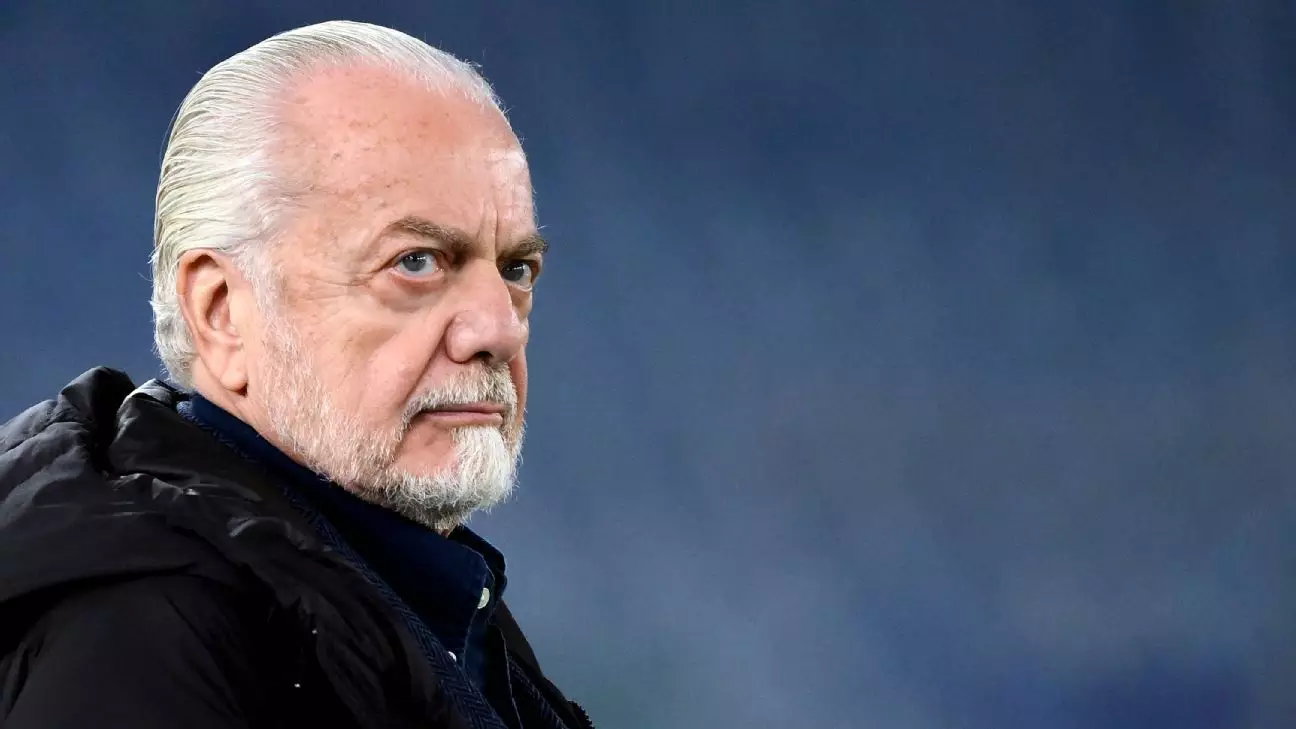The downfall of Napoli’s once-dominant football team can be traced back to a single, ill-advised certified email that set off a chain of events leading to the club’s destruction in less than a year. It all began with club president Aurelio De Laurentiis exercising the unilateral option to extend coach Luciano Spalletti’s contract, without any prior discussion or negotiation. This action, intended as an opening gambit, backfired tremendously, resulting in Spalletti’s resignation and departure from the club. It was a move that highlighted the lack of communication and understanding between key figures at the club, ultimately leading to a series of disastrous decisions that followed.
With Spalletti’s abrupt departure, Napoli found themselves scrambling to find a replacement. After a string of rejections from potential coaches, Rudi Garcia was appointed as the new head coach. However, Garcia’s tenure was short-lived as he failed to meet expectations and was ultimately fired after just twelve games into the season. The revolving door of managers continued as Walter Mazzarri was brought in as the next head coach, despite his mixed track record and lack of alignment with Napoli’s playing style. Under Mazzarri’s leadership, Napoli’s performance deteriorated significantly, leading to their descent to 10th place in the league table and a humiliating defeat in the Coppa Italia. The club’s downward spiral seemed inevitable as poor decisions and lack of coherent strategy plagued their season.
As Napoli’s on-field struggles intensified, off-field controversies added to their woes. The decision to exclude midfielder Piotr Zielinski from the squad for the Champions League knockout phase raised eyebrows and sparked speculation about internal turmoil within the club. Zielinski, a longstanding member of the team, had opted to become a free agent at the end of the season, leading to conjecture that his exclusion was a punitive measure for his impending departure. The move reflected a breakdown in trust and communication between the club management and players, further contributing to the tumultuous atmosphere at Napoli during this tumultuous period.
With Napoli’s season spiraling out of control, De Laurentiis made yet another hasty decision by appointing Francesco Calzona, a relatively unknown coach with no prior experience in club football, as the interim head coach. Calzona’s appointment, amidst the chaos and uncertainty surrounding the club, raised questions about the soundness of the decision-making process at Napoli. The lack of a clear and sustainable long-term strategy only exacerbated the club’s woes, highlighting the need for stability and coherence in the management of a football team.
The downfall of SSC Napoli serves as a cautionary tale for football clubs, emphasizing the importance of effective communication, strategic planning, and leadership in sustaining success. The series of missteps and regrettable decisions that led to Napoli’s decline underscore the fragility of success in the world of sports. Moving forward, Napoli must learn from their mistakes, rebuild trust and unity within the club, and chart a new course towards redemption. While the road ahead may be challenging, with the right approach and collective effort, Napoli can emerge stronger from this period of adversity and reclaim their status as a formidable force in Italian football.

Leave a Reply